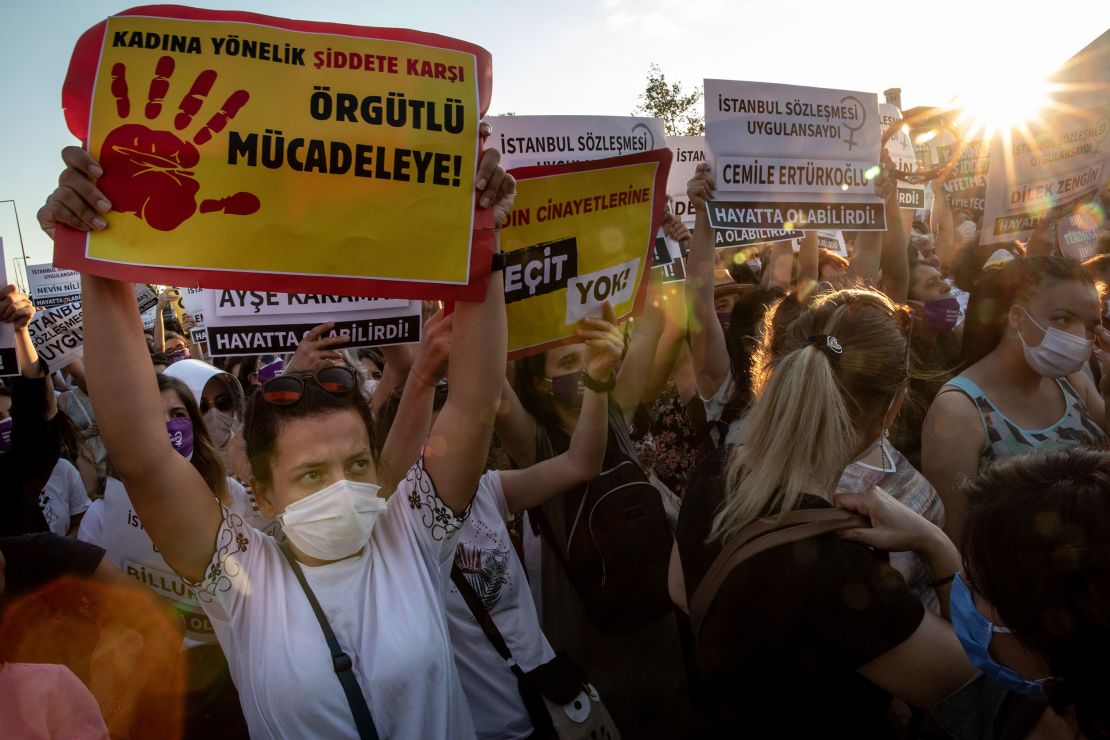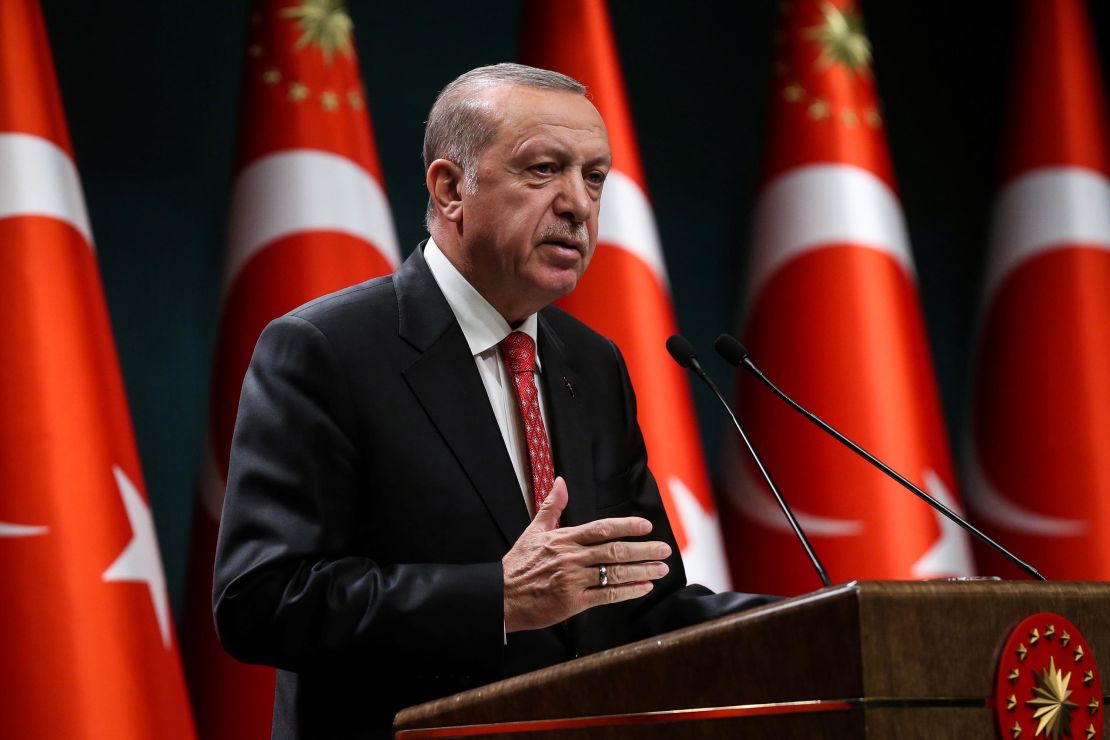Editor’s Note: Rahila Gupta is an author and journalist. She has written several books, including “Don’t Wake Me: The Ballad of Nihal Armstrong” and “Enslaved: The New British Slavery.” Follow her on Twitter: @RahilaG. The opinions expressed in this commentary are solely hers. Read more opinion at CNN.
Women have always been punching bags for men’s anger in the patriarchal systems we live in. It comes as no surprise that rates of violence are up everywhere as the pandemic and its lockdowns push women further into men’s deadly embrace.
In Turkey, with its already high rate of femicide – more than 400 women are killed every year – the release of violent men from prisons during lockdown may have further aggravated the situation. Several incidents of domestic violence were reported including the killing of one woman. Women took to the streets recently to express their fury at the brutal murder of a university student, Pinar Guletkin, by her ex-boyfriend who strangled her, stuffed her into a barrel, burned it and poured concrete over it.
Despite this appalling record on femicide, CNN reported last month that Turkey is debating its withdrawal from the Istanbul Convention, a Council of Europe (CoE) legally binding set of guidelines on combating and preventing violence against women. Critics of the treaty in Turkey claim it erodes “family values” and promotes “LGBT lifestyles.” Women’s groups in the country, fearful that violence against women will increase if the Istanbul Convention is dropped, have organized mass rallies.

But what is the evidence that international instruments work, especially in the absence of a commitment to gender equality?
The CoE’s 2018 report on Turkey found that it was in breach of the Istanbul Convention in several ways. However, there are no real repercussions, no decrease in trade or aid. Feride Acar, a former president of the group that monitors the implementation of the Convention, said limply that “it will have some negative consequences in terms of the CoE’s perspective on Turkey.” That is hardly likely to derail President Erdogan.
Since the failed coup attempt of 2016, Erdogan’s assault on democracy has redoubled with thousands of academics, journalists and soldiers behind bars without due process. Violence against the Kurds continues both in southeastern Turkey and in the invasion and occupation of Rojava, across the border in Syria, particularly targeting Kurdish women.
Such deep-rooted state misogynism does not bode well for women seeking protection from domestic violence.

It is the Kurdish regions that have been leading the way in radical policies to support women facing violence that go far beyond the Istanbul Convention. Municipalities in Kurdish enclaves in Turkey, such as Diyarbakir and Mardin in the southeast, exploited the already existing, powerful, local mayoral system to introduce their own women-friendly democratic administrations as far back as 2007.
Local government there was run by a system of co-mayors, a man and a woman, a gender balance to be found at all levels. They introduced gender-responsive budgeting in recognition of the fact that poverty traps women in violent situations. They introduced gender-sensitive employment contracts – any married man found to be violent would have half his salary paid to his wife; a man’s contract would be terminated if polygamy or a child marriage were discovered or if he prevented his daughter or sister from going to school. They also set up and worked with women’s support centers to minimize violence, unlike the central Turkish government, which represses women’s groups who are critical of government by imprisonment of key activists and financial fines.
Now those are what I call teeth. Of course, those teeth can be and have been pulled by Erdogan. A number of democratically elected Kurdish mayors have been arrested and replaced with government trustees who reversed these women-friendly policies.
Across the border, Rojava – an autonomous administration set up by the Kurds that is technically in Syria – did not need the Istanbul Convention to set standards on violence against women either.
Rojava’s laws and policies arise from an understanding that patriarchy and capitalism go hand in hand, that both must be toppled in order to make progress on the issue of violence against women. The region understands that a culture of equality has to run right throughout society to minimize violence and that awareness raising across the population must be consistently carried out.
Rojava has produced a battery of laws to criminalize domestic violence, so-called honor crimes and killings, forced marriage, child marriage and polygamy. SARA, a Rojava-based group that supports women escaping violence, believes that violent incidents have halved since the passing of this legislation. When a man is convicted of domestic violence offences, he is put in prison and given gender equality classes. It is only when he appears to have been rehabilitated that he is taken back to his wife – if she agrees to have him back – and the situation is monitored by the local commune’s conflict resolution committee.
I am not arguing that the Istanbul Convention does not have its uses. Even its minimal standards are too radical for misogynist states like Turkey. What I am saying is that its uses are limited and feminist energies would be better spent in campaigning for their local municipal areas to implement the good practice models outlined above.
For the moment, the Rojava women’s revolution has the freedom of action that has been snatched from Turkey’s Kurdish enclaves, despite their attempt to fly below Erdogan’s radar. Long may it continue to inspire us all.

